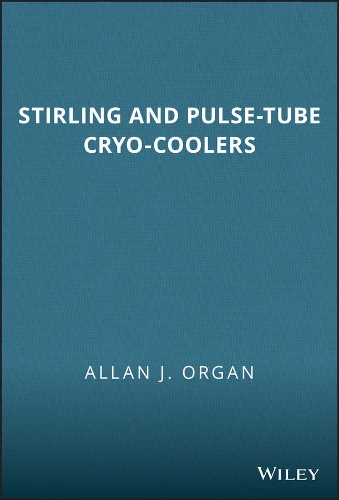
Stirling and Pulse-Tube Cryo-Coolers
Series: English
Modern technology calls increasingly for provision of cooling at cryogenic temperatures: super-conductivity research; imaging equipment for search-and-rescue; contemporary diagnostic medicine (MRI - magnetic resonance imaging); space exploration; advanced computer hardware; military defence systems. Where it is desirable to generate the cooling effect close to the point of heat removal, electrical
NaN
VOLUME
English
Hardback

Modern technology calls increasingly for provision of cooling at cryogenic temperatures: super-conductivity research; imaging equipment for search-and-rescue; contemporary diagnostic medicine (MRI - magnetic resonance imaging); space exploration; advanced computer hardware; military defence systems. Where it is desirable to generate the cooling effect close to the point of heat removal, electrically powered Stirling and pulse-tube machines offer advantages over traditional, passive systems (Leidenfrost and Joule-Thomson). Until now there has been no agreed approach to the thermodynamic design of either type. In particular, the choice of regenerator packing has remained a matter for time-consuming - and thus expensive - trial-and-error development. There has been no way of knowing whether an existing 'fully developed' unit is performing to the limit of its thermodynamic potential. Stirling and Pulse-tube Cryo-coolers addresses these problems. Features include: An ideal cycle for the pulse-tube yielding heat, mass-flow and work; Previously unseen phenomena of real gas behaviour; Pictorial reliefs of pressure wave interactions; Multiple wave reflections in graphic perspective First solution of the 'regenerator problem ' by a full, unsteady gas dynamics treatment; First ever depiction of pulse-tube boundary-layer events (heat conduction, 'streaming') driven by interacting left-and right-running pressure waves First analysis of the graded regenerator and optimisation of gas path design; Embryonic 'cook-book' method of ab initio cooler design based on dynamic similarity and thermodynamic scaling. Stirling and Pulse-tube Cryo-coolers raises the threshold from which first-principles design of regenerative cryo-coolers may start. Those wishing to extend their study of the subject beyond the well-trodden, ideal gas/quasi-steady-state rationalisations will require this book.About the Author: ALLAN J ORGAN is known internationally for his work on Stirling cycle machines. His research contribution has been recognized by two universities through the award of post-doctoral degrees - the DEng by Birmingham and the ScD by Cambridge. He is author of three highly regarded books and of numerous papers on regenerative thermal cycles. He is a Fellow of the Institution of Mechanical Engineers.
Price Comparison [India]
In This Series
Bestseller Manga
Trending NEWS




















